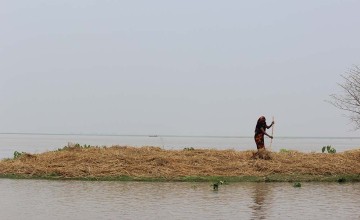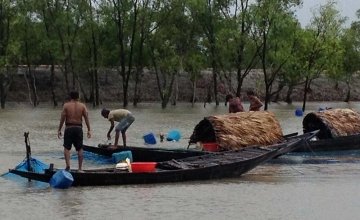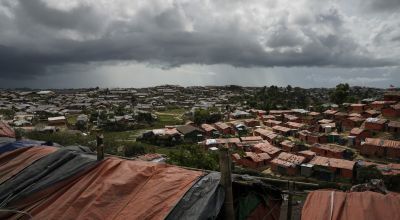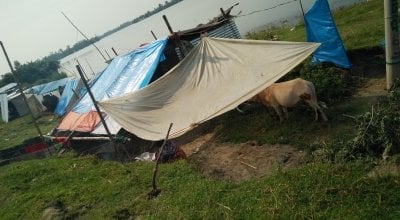
Read our 2024 annual report

Knowledge Hub
Climate change: voices from the frontline

Climate change expert Saroj Dash explains why poor communities in the Bay of Bengal are demanding action on climate change - and how local know-how (and mangrove forests) can play a vital role.
As world leaders debated steps to tackle climate change at the COP21 talks in Paris last week, communities on the front line of the fight are demanding action.
I’ve heard the voices of female community leaders in coastal Bangladesh, where I work as a regional technical co-ordinator focussing on climate change.
These women know climate change will have an irreversible impact on their ability to maintain a steady, nutritious diet. These voices must be amplified, to inform world leaders as they implement changes to reduce the impact of climate change.
Ensuring climate justice
Although the effects of climate change are global, the greatest impacts are felt by the least developed and developing countries.
Reasons for this include weak economies and infrastructure, and social and cultural inequality.
People living along the Bay of Bengal – in India, Bangladesh, Myanmar and Sri Lanka – have become much more vulnerable to the impact of climate change in recent years.
The biggest challenge at the talks in Paris was making sure that the stories of these vulnerable communities remained at the centre of the dialogue, to ensure climate justice.
Helping coastal communities
Concern Worldwide has been leading an international effort to help coastal communities in the Bay of Bengal become more resilient to the effects of climate change.
This includes taking steps to boost the biodiversity of the Sundarbans, one of the world’s largest mangrove forests. This solution shows how we can address the climate crisis using an ecosystem-based, ‘people’s science’ approach.
Local knowledge and experience are at the heart of our efforts.

Political commitment
This year has already seen effective global agreements linked to climate change, such as the setting of the UN’s Sustainable Development Goals. But world leaders have admitted that COP21 could be the last window of opportunity to protect small and marginal farmers, and create a world of sustainable and equitable growth for all.
Here in the Bay of Bengal, Concern and our partners have been holding annual conferences on improving community resilience, sharing ideas that will help people survive emergencies such as floods and typhoons. This year more than 120 aid workers, politicians, academics and journalists took part.
People here understand the threat climate change poses, and are working hard to deal with its impact. We expect world leaders to show the same level of engagement and really commit to tackling climate change.





